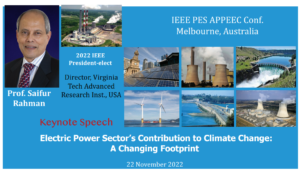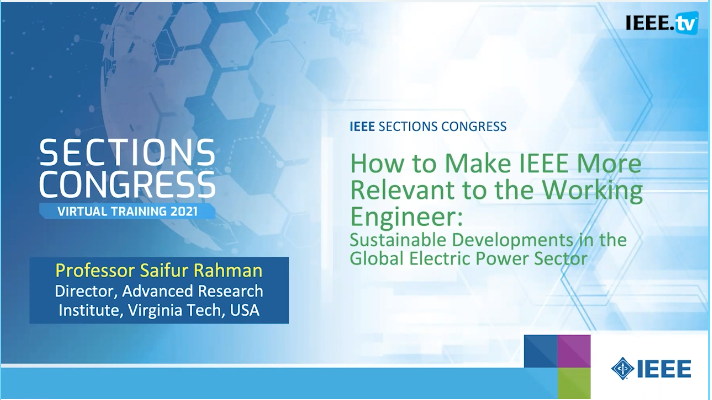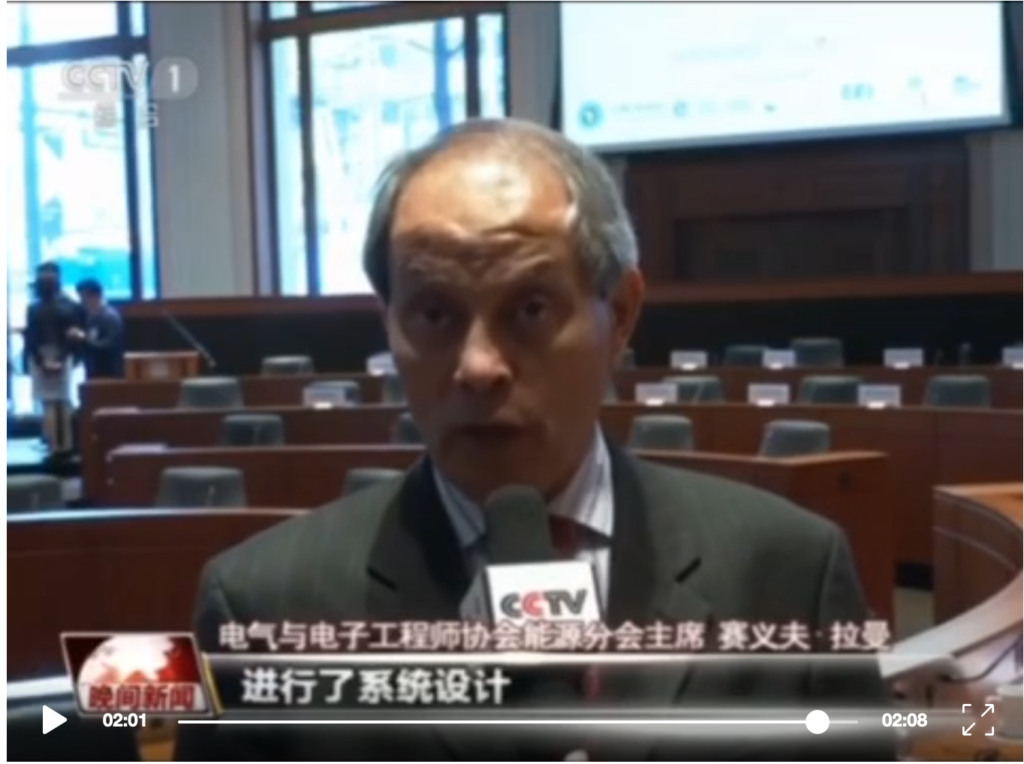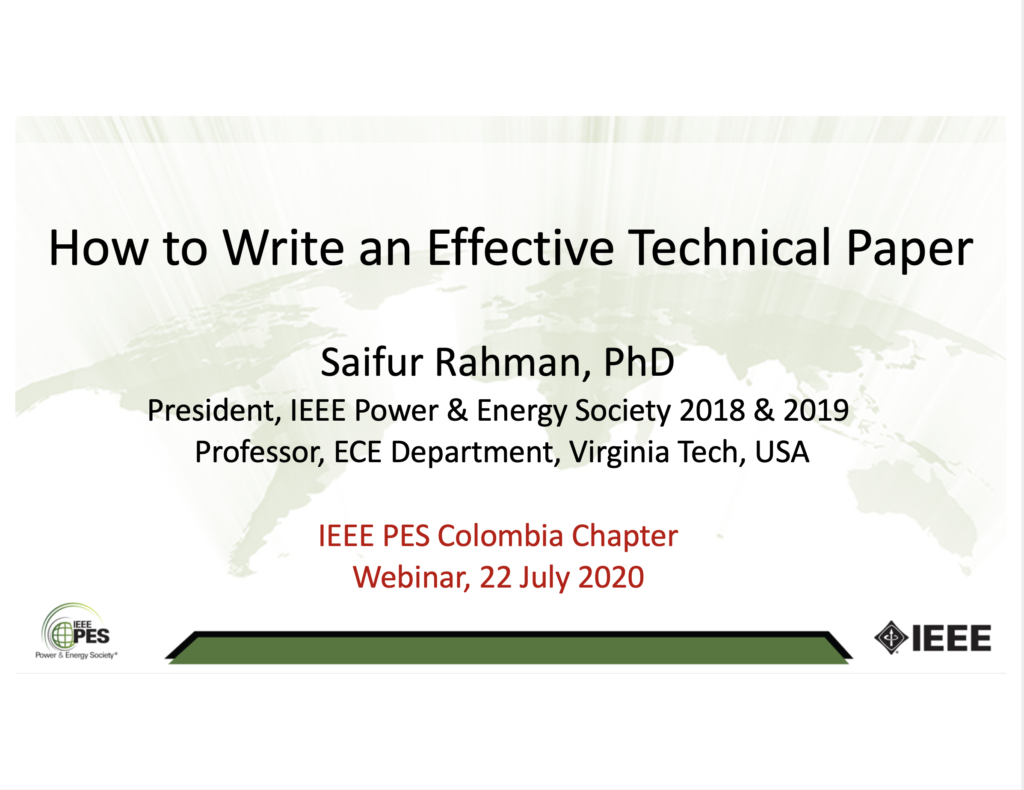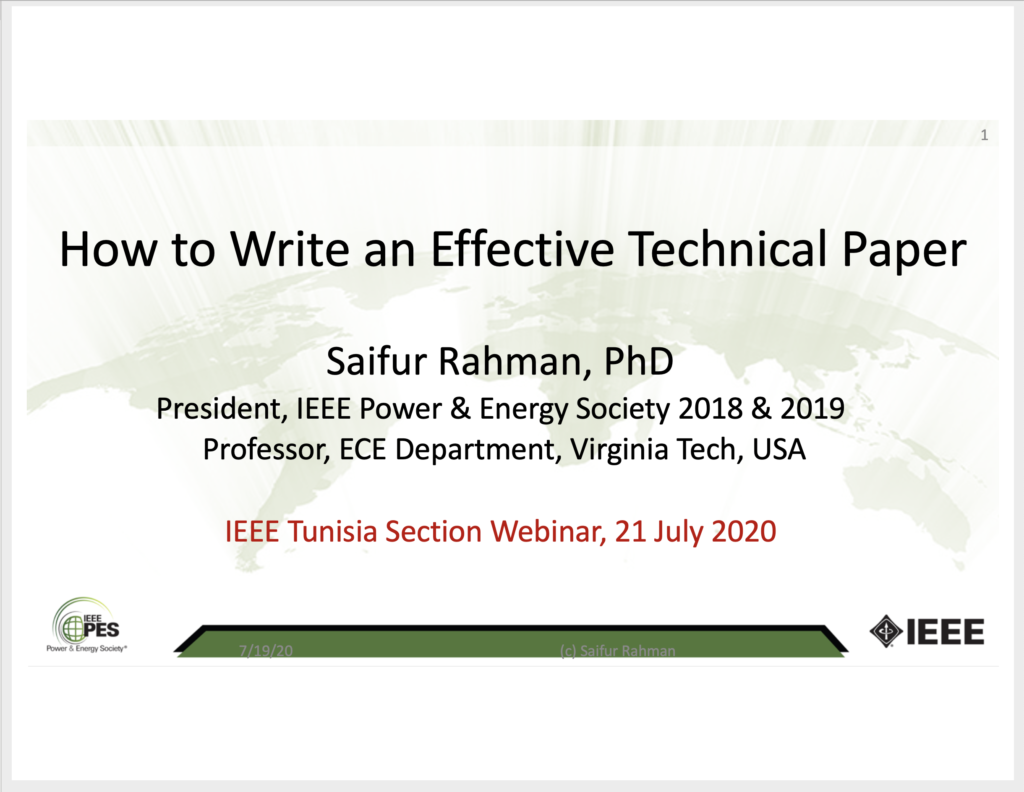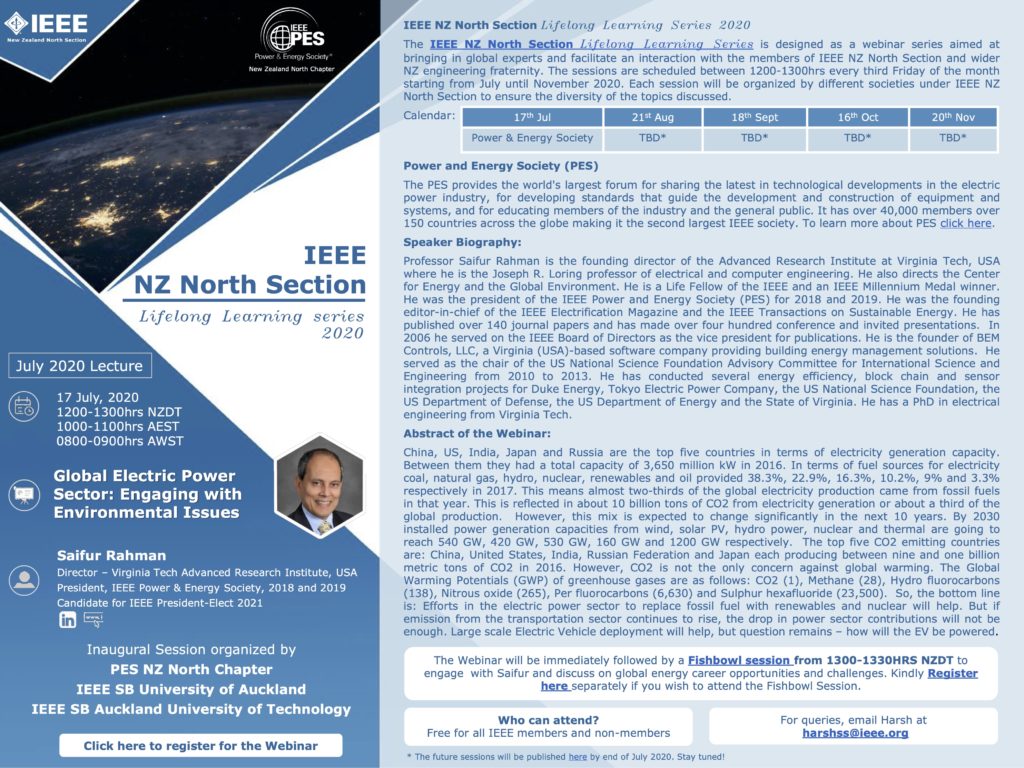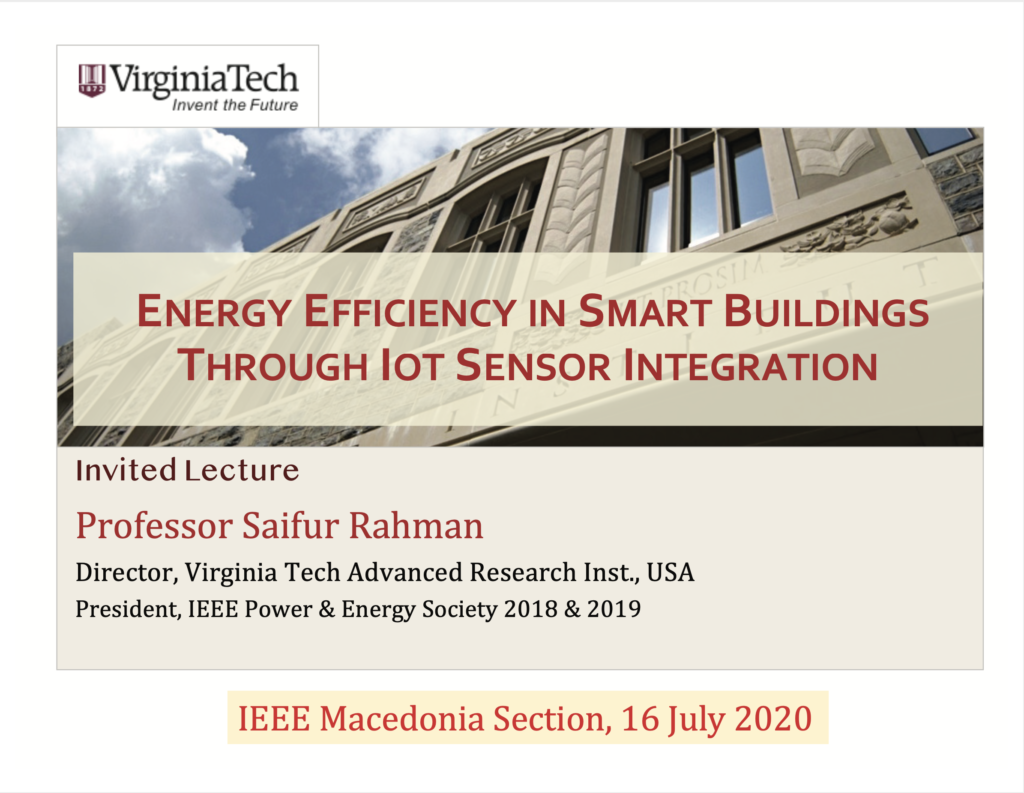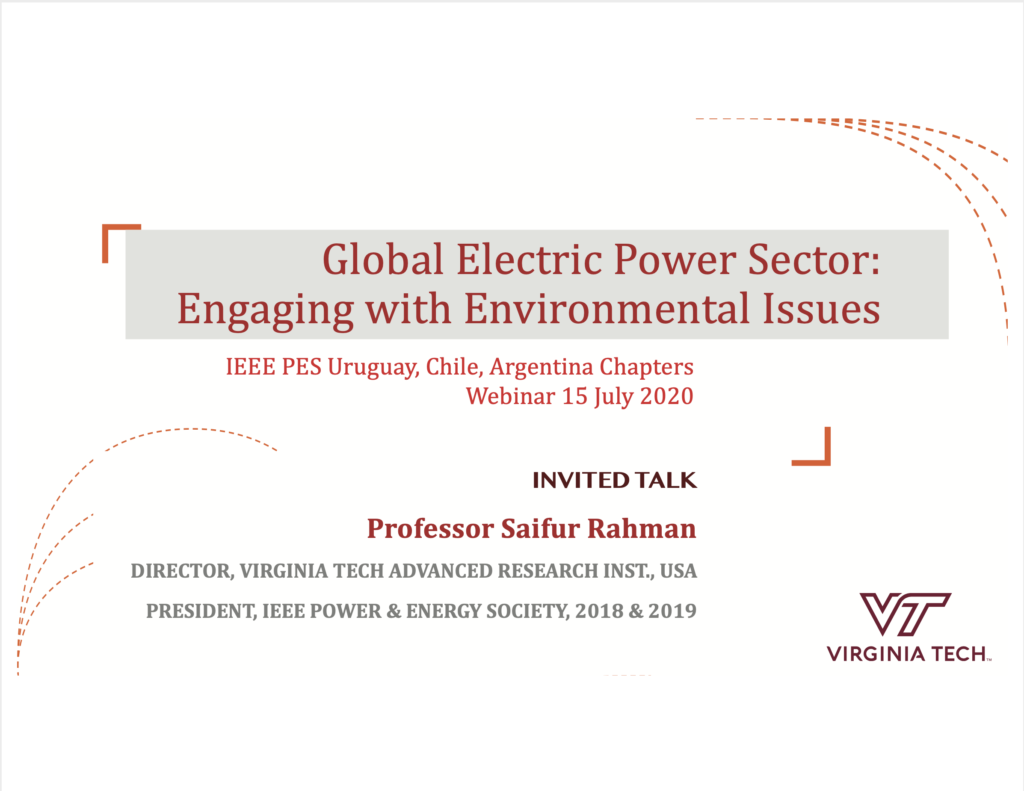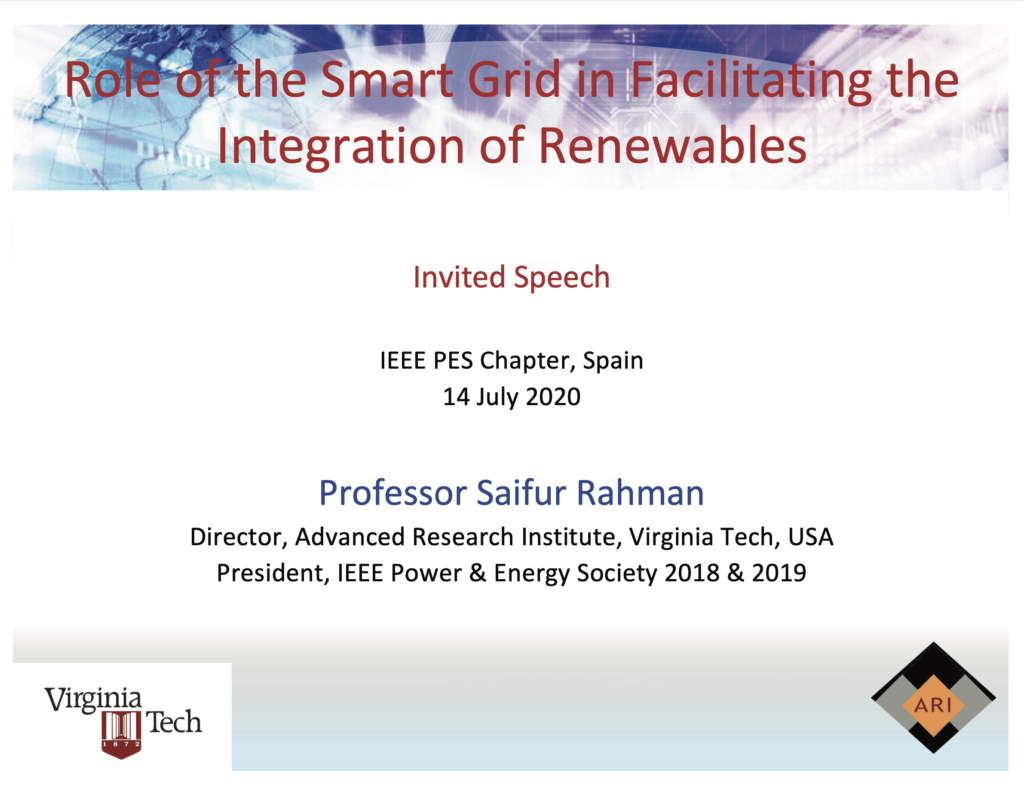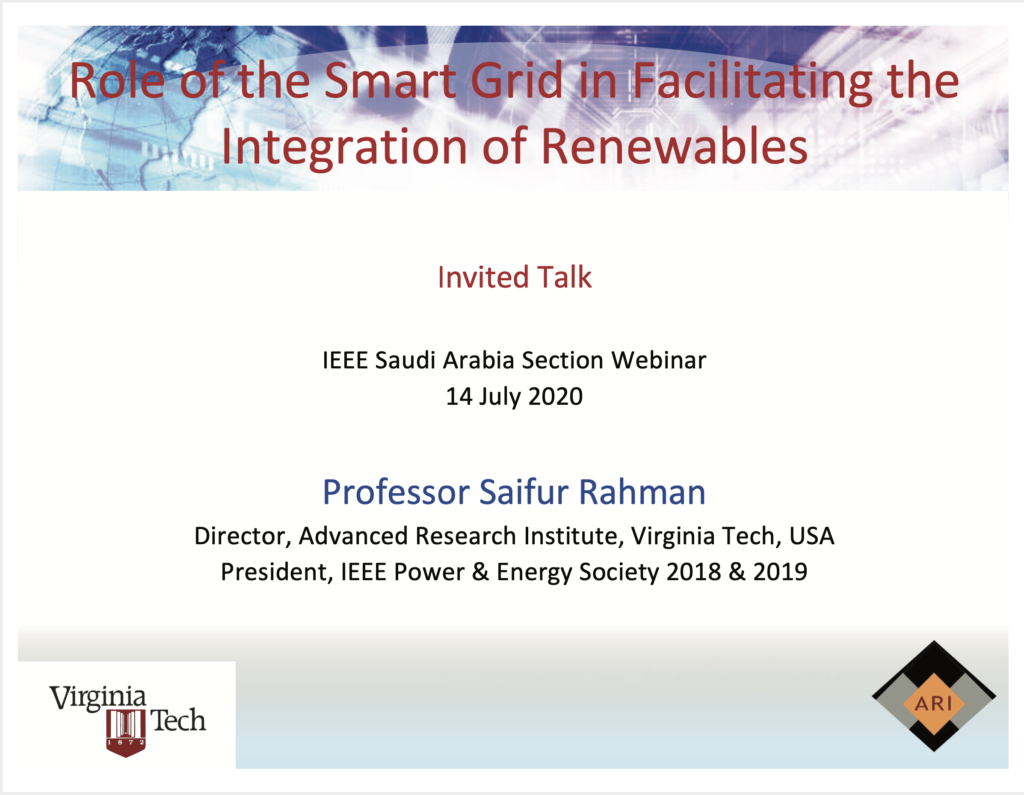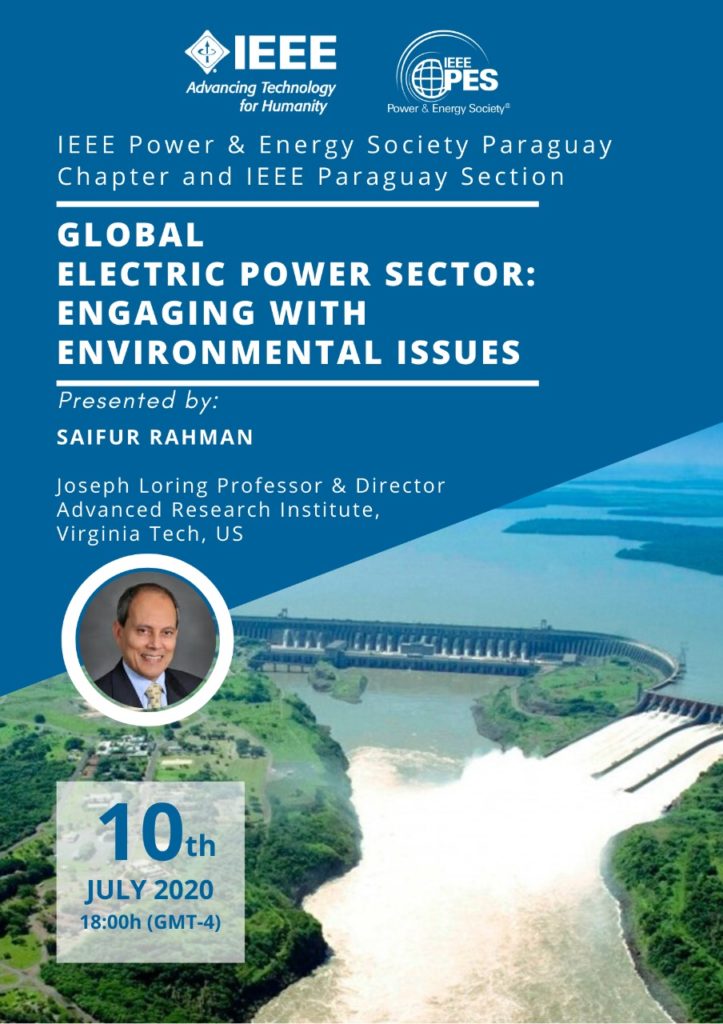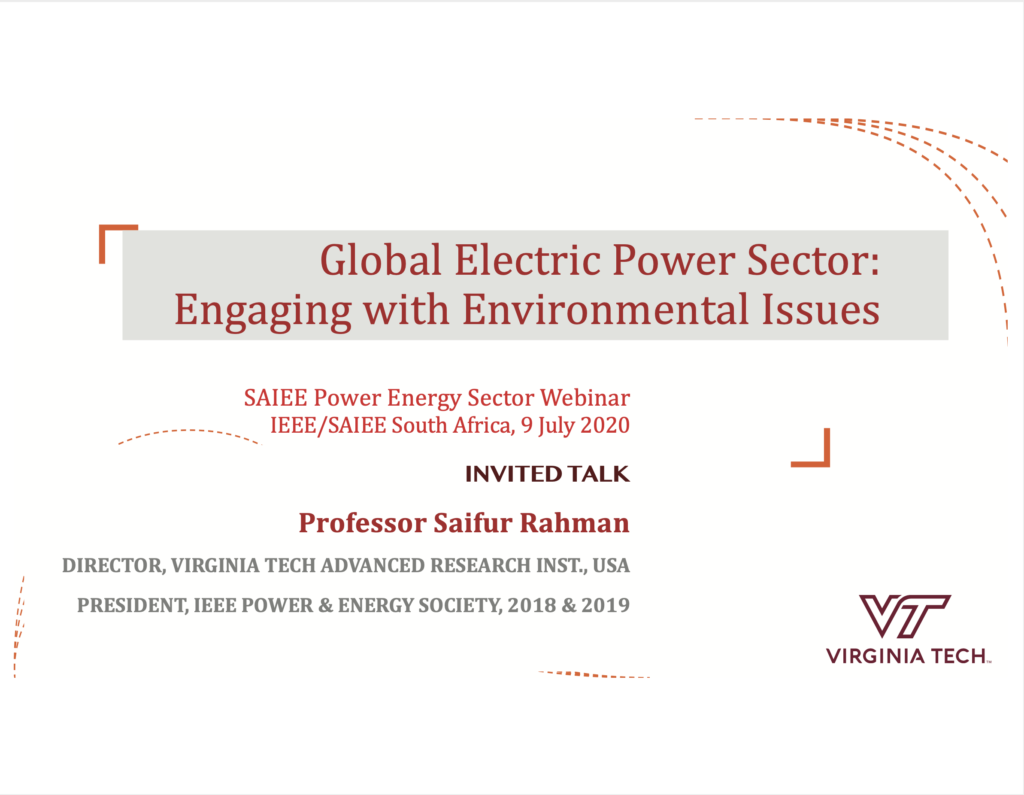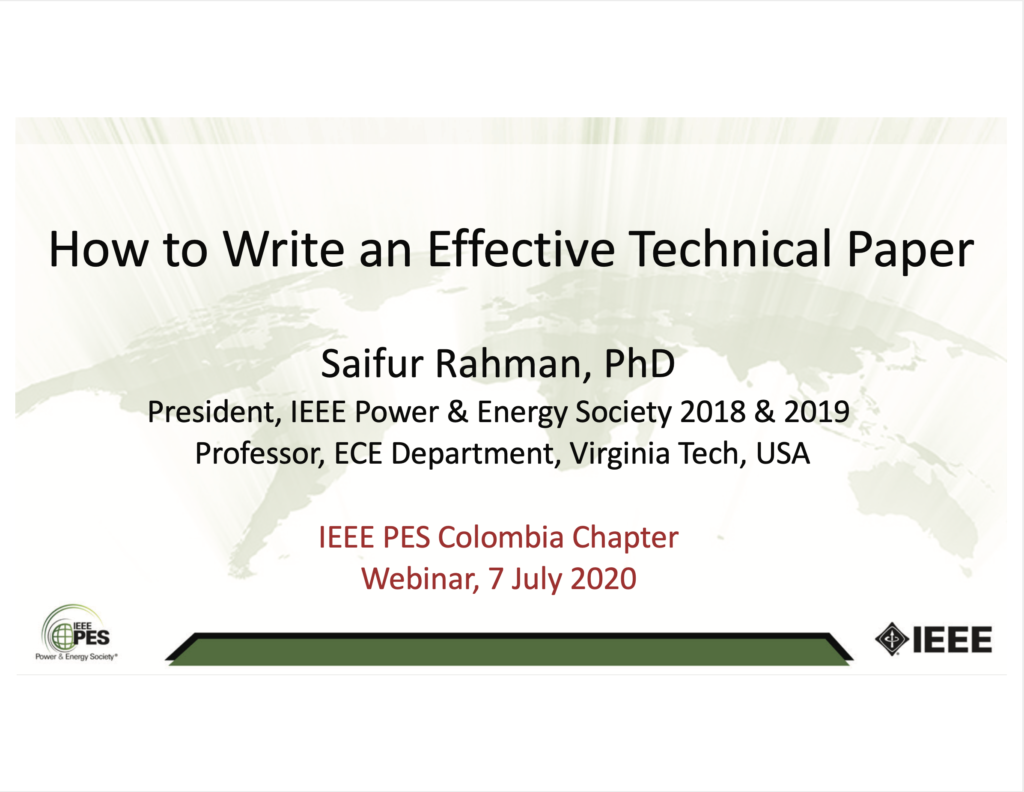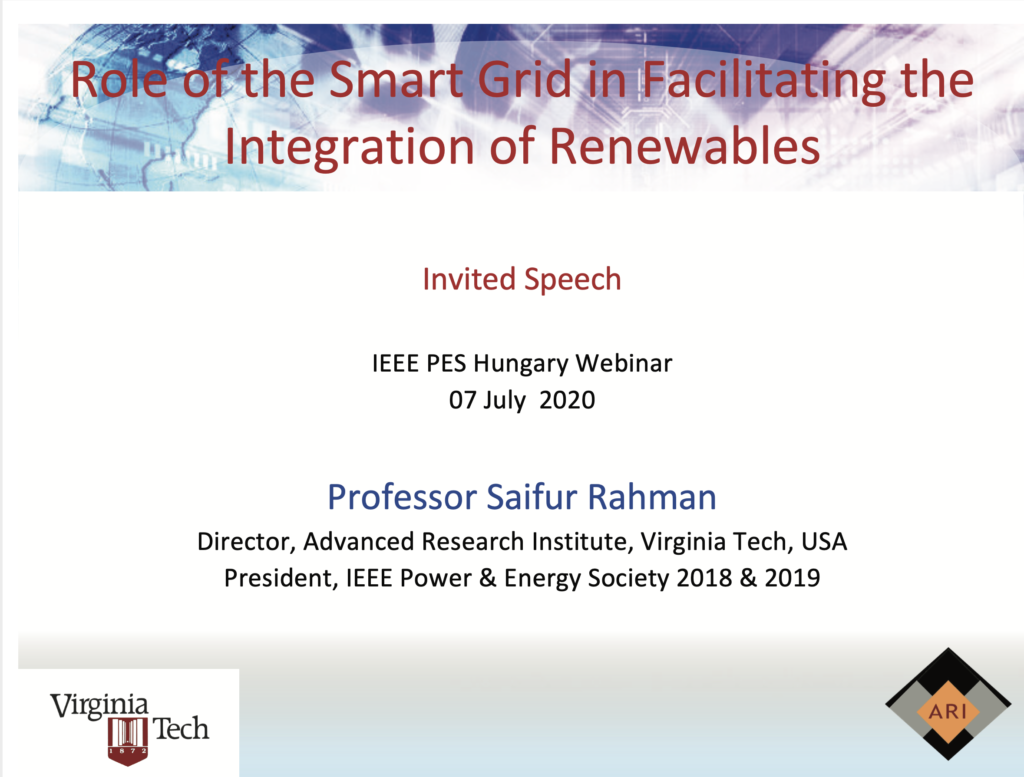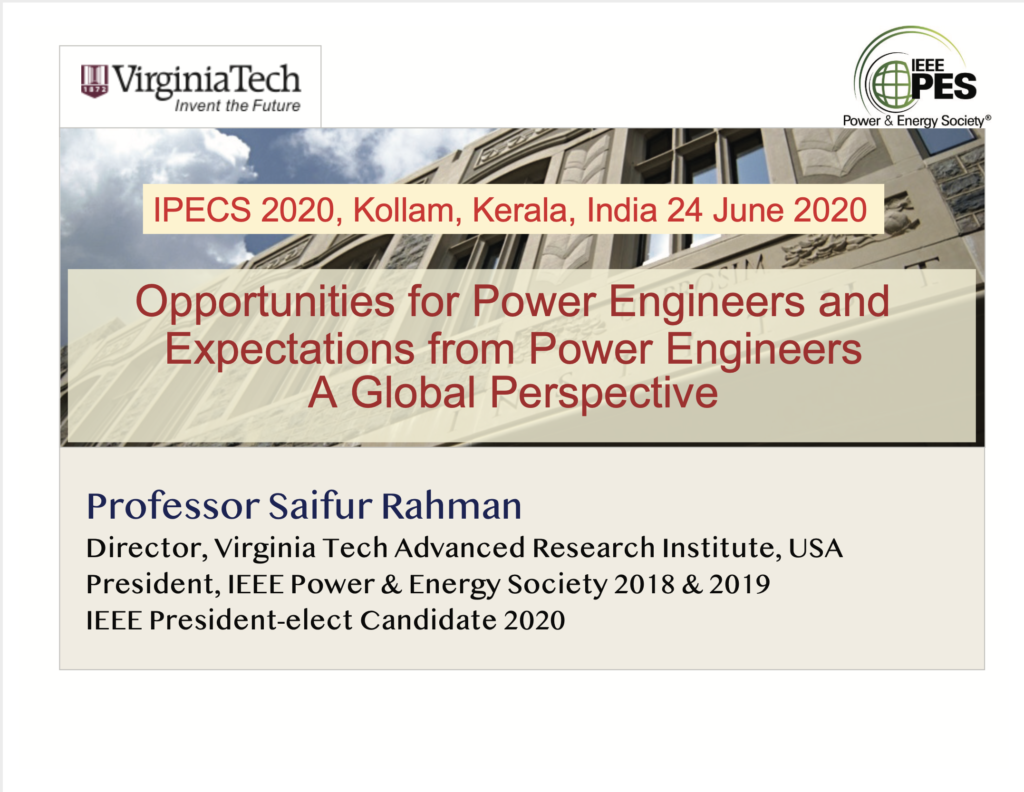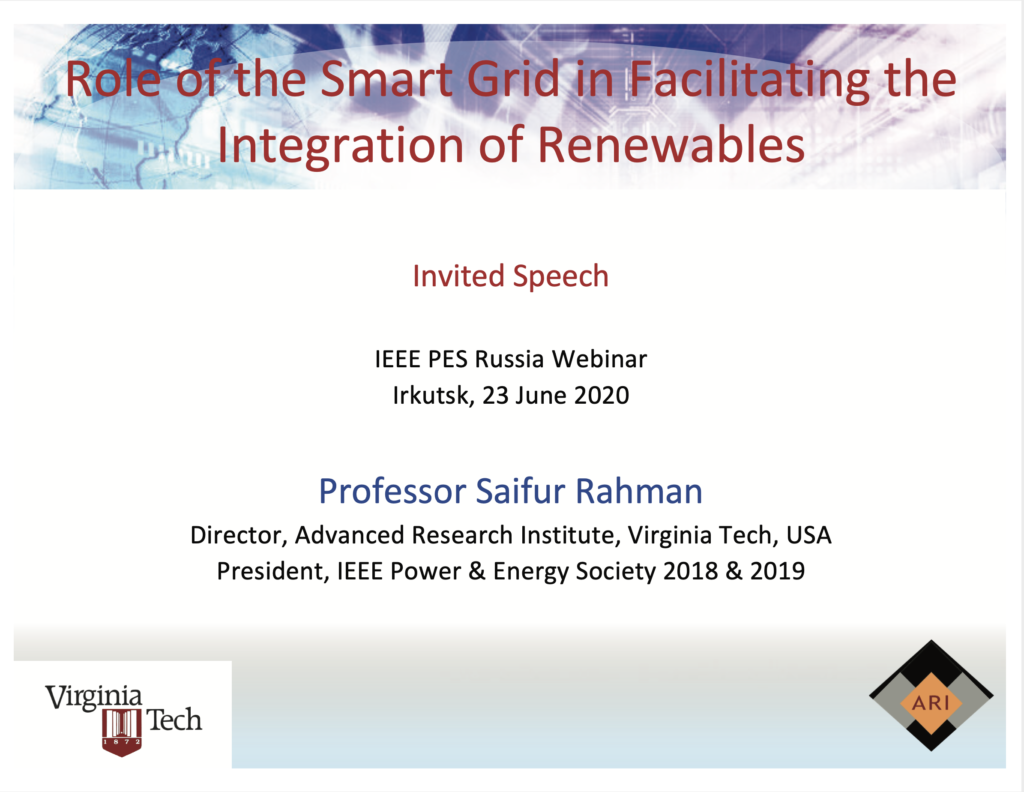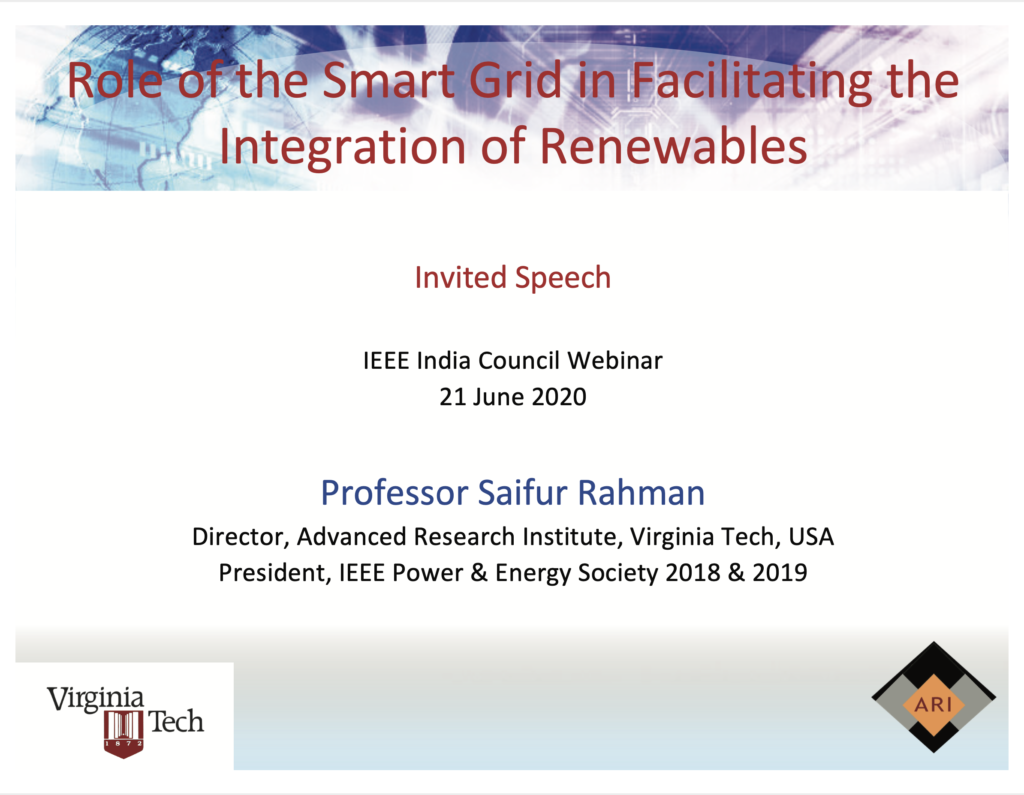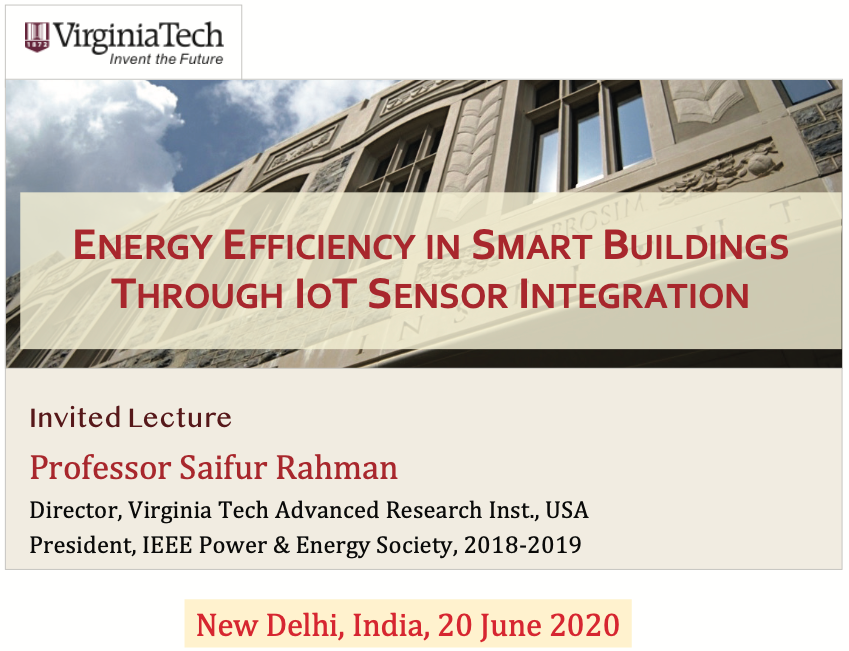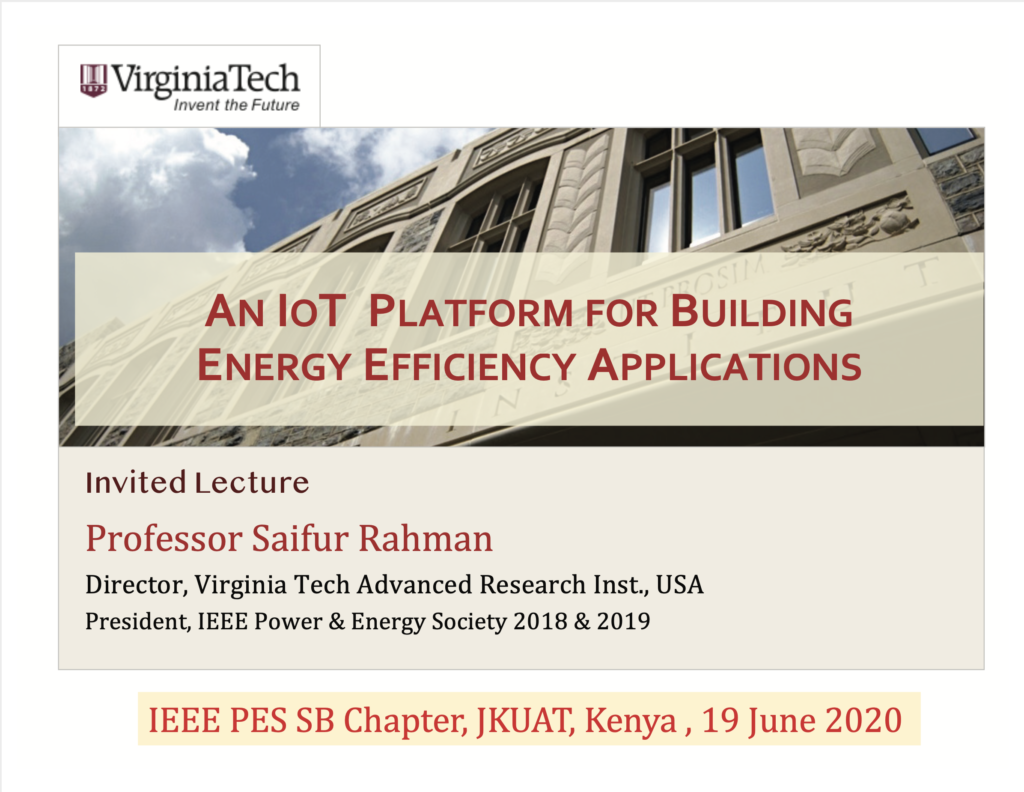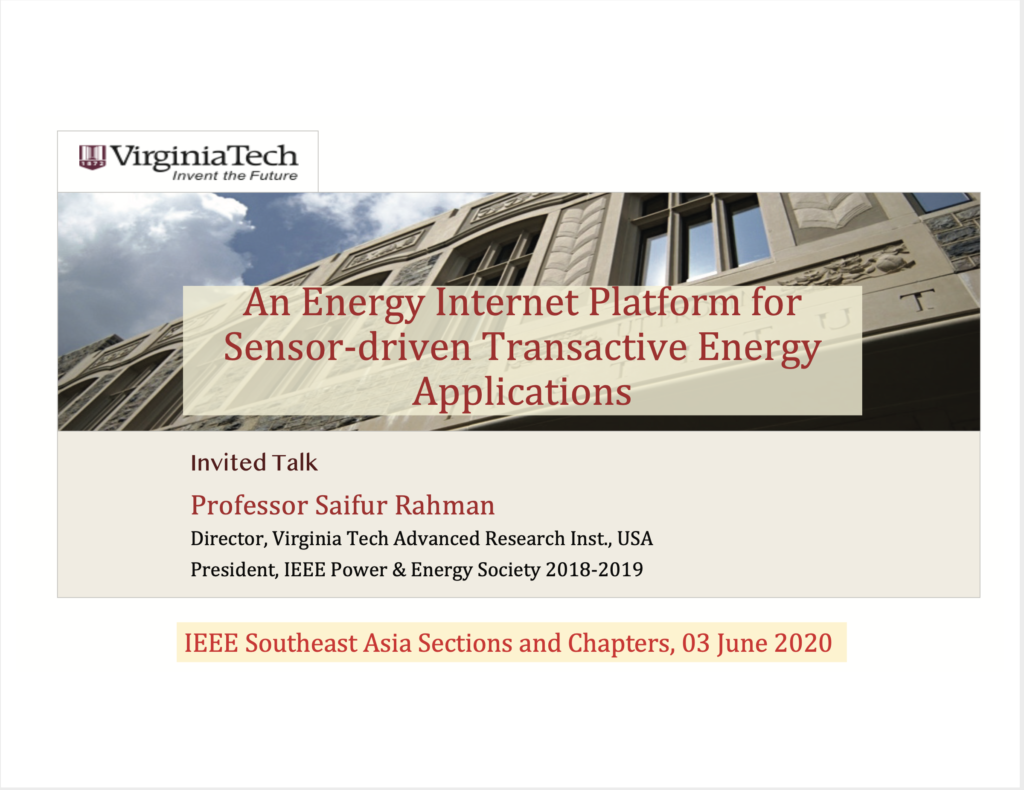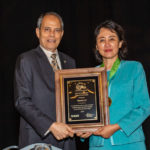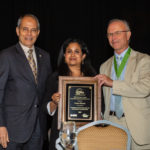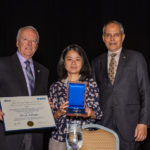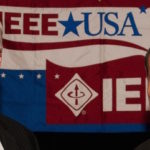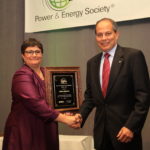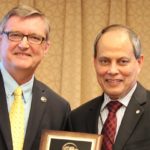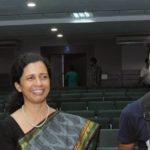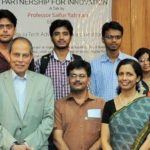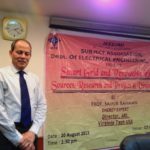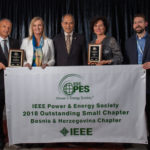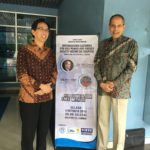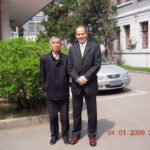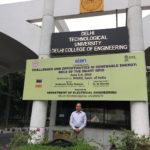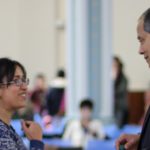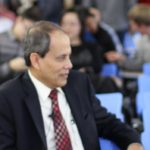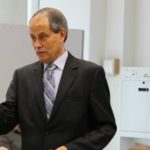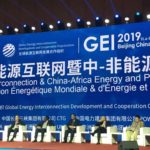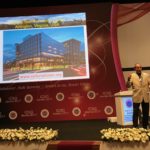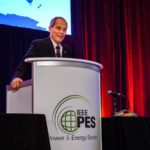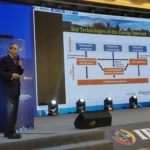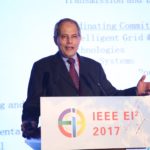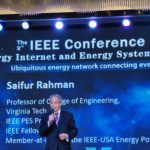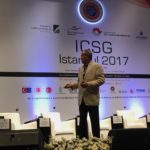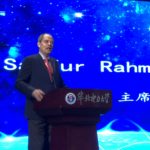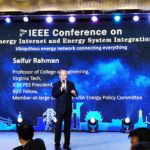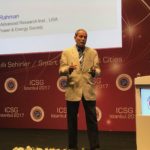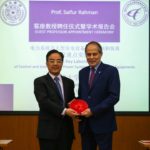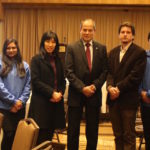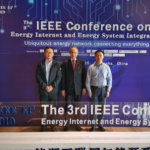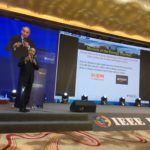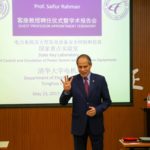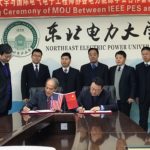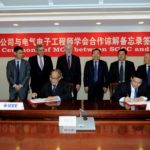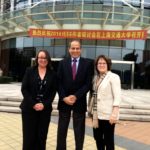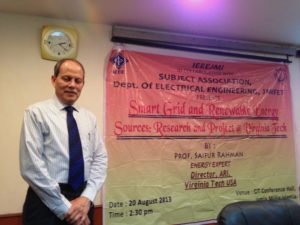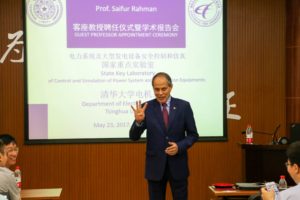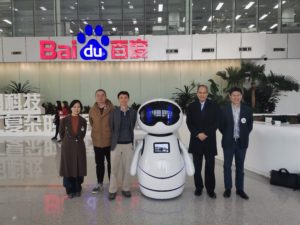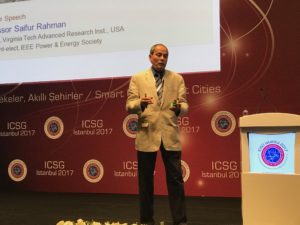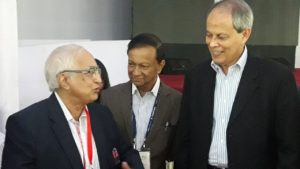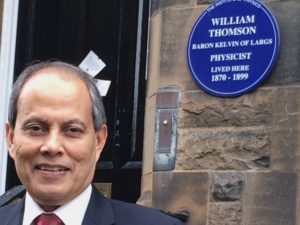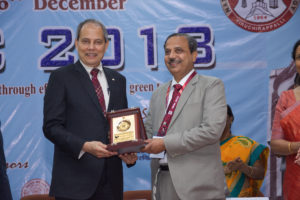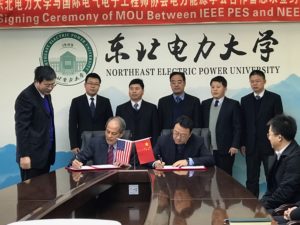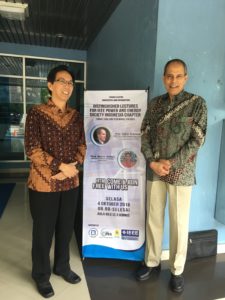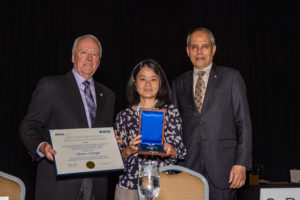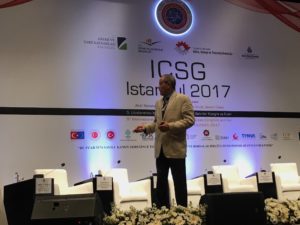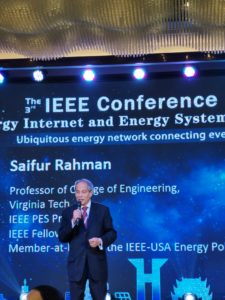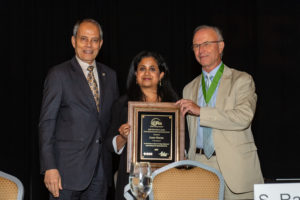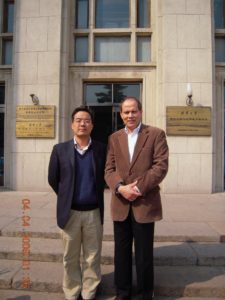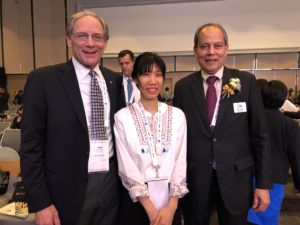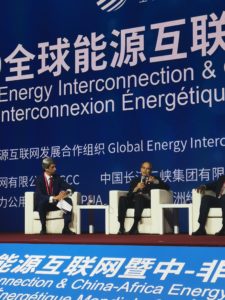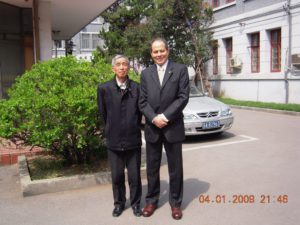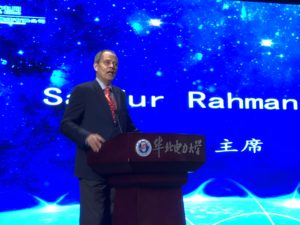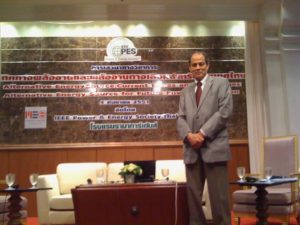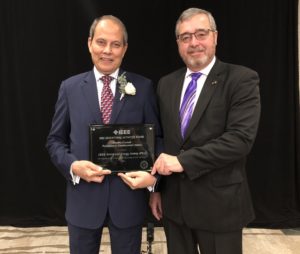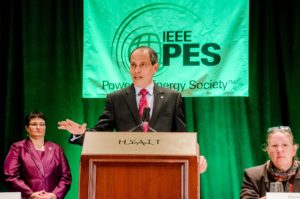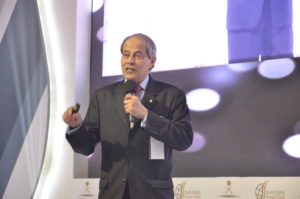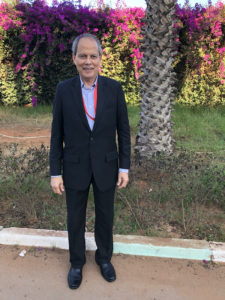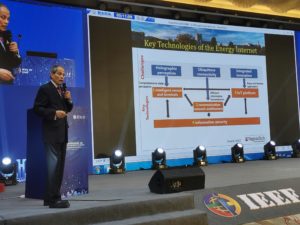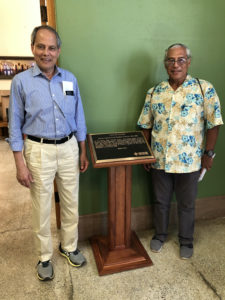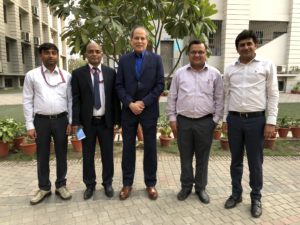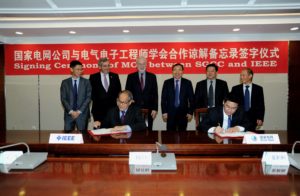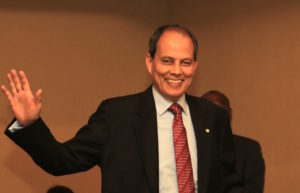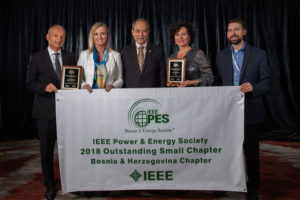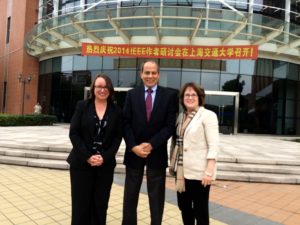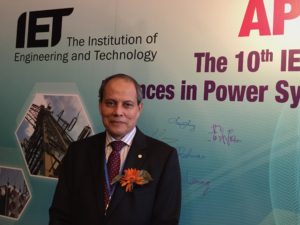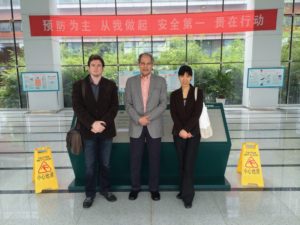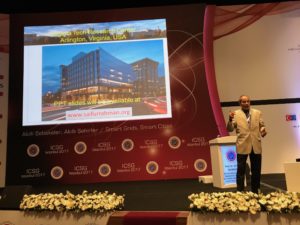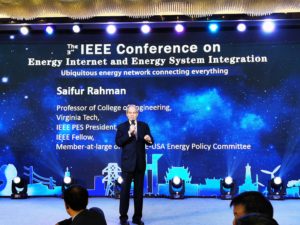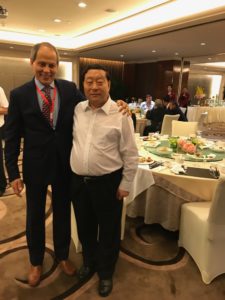13 February 2023
Cairo, Egypt
Clean Tech Solutions for Climate Change
Invited Talk, IEEE TEMS Egypt Chapter, Cairo, Egypt
A rising level of greenhouse gas emissions, its effect on life and property, food production and human productivity on the planet are raising alarm bells in the civil society, among policy makers and industry leaders. At the same time, there is a tension between industrialized nations and emerging economies about the approach to global decarbonization efforts in the electric power, transportation, ICT, buildings, agriculture and the manufacturing sectors.
This presentation addresses the causes and effects of carbonization and mitigation opportunities. A major focus is placed on the carbon produced through electricity production, as it is responsible for roughly 30% of carbon emissions globally. The challenge of decarbonization in this sector can be addressed using a portfolio of solutions with low-carbon generation (including renewables & nuclear), carbon capture and sequestration, storage, cross-border electricity transfer and advanced technology focusing on energy efficiency.
Invited Talk
IEEE TEMS Egypt Chapter
Cairo, Egypt
13 February 2022
22 November 2022
Melbourne, Australia
Electric Power Sector’s Contributionto Climate Change: A Changing Footprint
Keynote Speech, IEEE PES APPEEC
In 2020 the global total installed capacity for electricity generation was 7,860 GW. Following is the breakdown by fuel sources of electricity in that year: coal (27.4%), natural gas (23.5%), hydro (17.2%), nuclear (5.1%), oil (5.1%), wind (9.2%), solar PV (9.5%) and other renewables (3.0%). This means 56% of global electricity generation capacity came from fossil fuels in 2020. However, this mix is expected to change significantly by the of this decade. By 2030 the total global installed power generation capacity is expected to rise to 10,350 GW. Following is the breakdown by fuel sources of electricity in that year: coal (20.8%), natural gas (22.2%), hydro (15.4%), nuclear (4.3%), oil (3.4%), wind (12.5%), solar PV (18.4%) and other renewables (2.9%). This means 46.4% of global electricity generation capacity will come from fossil fuels in 2030. This is a 10 point drop in 10 years.
Here is the global breakdown of carbon dioxide (CO2) emissions from fossil fuel combustion by type of fuels (2019): Coal 44%, petroleum 34% and natural gas 22%. However, CO2 is not the only concern against global warming. The Global Warming Potentials (GWP) of greenhouse gases are as follows: CO2 (1), Methane (28), Hydro fluorocarbons (138), Nitrous oxide (265), Per fluorocarbons (6,630) and Sulphur hexafluoride (23,500). So, the bottom line is: Efforts in the electric power sector to replace fossil fuel with renewables and nuclear will help. But if emission from the transportation sector continues to rise, the drop in power sector contributions will not be enough. Large scale Electric Vehicle deployment will help, but question remains – how will the EV be powered.
IEEE PES APPEEC Conference
Melbourne, Australia
22 June 2022
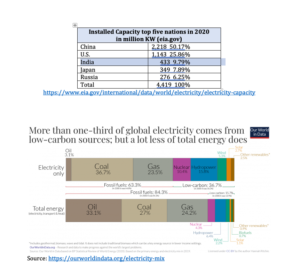
Let us make IEEE a more successful and resilient global technical organization
I have spoken at over 200 IEEE events in all ten IEEE regions. My close association with members and volunteers at grassroots level gives me insights. I can easily empathize with academics, young professionals, mid-career industry engineers, and women and under-represented minorities, in particular. This helps me to address your needs by developing appropriate programs to advance your professional development. I pledge to:
Powerfully demonstrate IEEE’s relevance to current and prospective members
- Proactive outreach demonstrating benefits of IEEE membership
- Highlight the unparalleled networking opportunities at over 2000 international IEEE conferences held annually
- Provide access to massive resources for up-skilling and innovative collaboration facilities with like-minded colleagues worldwide that IEEE makes available
Recognize the contributions our volunteers make for our publications and standards
- Reviewers of IEEE journal papers will earn points which they can redeem to download published papers
- Volunteers who contribute to guides and standards development can have access to these documents for their own use
Make IEEE stronger, more relevant, more global and more assertive
- Provide broader member benefits and ensure financial transparency and stability
- Promote new and innovative products and services for IEEE members
- Deliver closer ties with industry and grow industry membership
- Ascend geographical and political barriers to allow equal volunteer participation in IEEE
- Better recognize contributions of female and under-represented minority members
- Advance IEEE as a leader for addressing global challenges like Sustainable Development by working closely with other global technical professional societies
Together we will make IEEE a more successful and resilient global technical organization
Power & Energy Society
- Past-President and Member of the Gov Board, IEEE Power & Energy Society, 2020 – 2021.
- President and Member of the Gov Board, IEEE Power & Energy Society, 2018 – 2019.
- President-elect and Member of the Gov Board, IEEE Power & Energy Society, 2016 – 2017.
- Vice President, Publications and Member of the Gov Board, IEEE Power & Energy Society, 2012 – 2013.
- Vice President, New Initiatives & Outreach and Member of the Gov Board, IEEE Power & Energy Society, 2008 – 2011.
- Vice President, Technical Information Services, IEEE Power Engineering Society, 2001 – 2003.
- Vice President, Education/Industry Relations, IEEE Power Engineering Society, 1999 – 2000.
- Chair, Virginia Mountain Chapter, IEEE PES, 1981 – 1982.
- Secretary/Treasurer, Virginia Mountain Chapter, IEEE PES, 1980 – 1981.
- Member, IEEE PES Long Range System Planning Task Force, 1980 – 1986.
- General Chair, IEEE PES ISGT Conference, Washington DC 2013, 2014 and 2015
- General co-Chair, IEEE Asia Pacific Power & Energy Engineering Conference, Wuhan, China 2010
IEEE Board/Committees
- Member, IEEE TAB/PSPB Products & Services Committee, 2018 and 2020.
- Member, Board of Governors, IEEE Society for the Social Implications of Technology, 2014 – 2016.
- Vice Chair, IEEE Publications Board, 2010.
- Chair, IEEE Products & Services Committee, 2007 – 2010.
- Director, IEEE Board of Directors, 2006
- Chair, IEEE Publications Board, 2006.
- Vice Chair, IEEE Publication Services and Products Board, 2004 – 2005
- Chair, IEEE TAB Periodicals Committee, 2004 – 2005.
- Member, IEEE Information Technology Strategic Committee, 2003 – 2004.
- Chair, IEEE EAB Lifelong Learning Council, 2002.
- Chair, IEEE Society Education Committee, 1999 – 2001.
- Member, IEEE TAB Periodicals Committee, 2001 – 2003.
- Member, Southeastern Electric Utility Research Group, 1986.
- Awards Chairman, Virginia Mountain Section, IEEE, 1986 – 1987.
- Member, Executive Committee, Virginia Mountain Section, IEEE, 1986 – 1987.
- Chair, Virginia Mountain Section, IEEE, 1985 – 1986.
- Member, IEEE Virginia Council, 1985 – 1986.
- Vice-Chairman, Virginia Mountain Section, IEEE, 1984 – 1985.
- IEEE PES Corporate Engagement Program
Under my leadership, the Power & Energy Society started the IEEE PES Corporate Engagement Program in 2018. This is designed for the employer to pay the employee’s IEEE membership dues, and in return getting special recognition from the Power & Energy Society. This engages the organization more closely with IEEE. Additionally, this program gives the employer an opportunity to recognize and reward higher performing engineers or faculty members. - IEEE PES Chapters’ Councils
We need a deeper engagement with technologists at the grassroots level. For IEEE societies, chapter members are our key resource. To provide a direct link between chapter leadership and the society governing board, I set up the highly effective IEEE Power & Energy Society Chapters’ Councils in China, India, Africa and Latin America that engage members, organize local events and reach out to local industry. I will mirror similar developments throughout IEEE. - The PES University
One of the high-value opportunities IEEE members and non-members have expressed to me is lifelong learning, which IEEE can provide. I helped establish the very successful online PES University. This “university” offers tutorials, webinars and plain-talk courses in the Power & Energy Society’s field of interest. I will work on setting up an IEEE University encompassing all of IEEE’s fields of interest to support career development of practicing technologists.
(S’74-M’78-SM’83-F’98-LF’15)
Professor Saifur Rahman is the founding director of the Advanced Research Institute at Virginia Tech, USA where he is the Joseph R. Loring professor of electrical and computer engineering. He also directs the Center for Energy and the Global Environment at the university. He is a Life Fellow of the IEEE and an IEEE Millennium Medal winner. He was the president of the IEEE Power and Energy Society (PES) for 2018 and 2019. He was the founding editor-in-chief of the IEEE Electrification Magazine and the IEEE Transactions on Sustainable Energy. He has published over 140 journal papers and has made over four hundred conference and invited presentations. His h-index is 51 with over 14 thousand citations. In 2006 he served on the IEEE Board of Directors as the vice president for publications. He is a distinguished lecturer for the IEEE Power & Energy Society and has lectured on renewable energy, energy efficiency, smart grid, energy internet, blockchain, IoT sensor integration, etc. in over 30 countries. He is the founder of BEM Controls, LLC, a Virginia (USA)-based software company providing building energy management solutions. He served as the chair of the US National Science Foundation Advisory Committee for International Science and Engineering from 2010 to 2013. His research at Virginia Tech has been funded by Duke Energy, Tokyo Electric Power Company, the US National Science Foundation, the US Department of Defense, the US Department of Energy and the State of Virginia. He has a PhD in electrical engineering from Virginia Tech.
As IEEE President my focus will be to make IEEE more global and more relevant to technology professionals from all over the world through the following actions:
First, demonstration of relevance. Through proactive outreach and demonstrating benefits of IEEE membership, from unparalleled networking opportunities at over 2000 international IEEE conferences, access to the finest technological literature, innovative collaboration facilities with like-minded colleagues worldwide, we can powerfully demonstrate IEEE’s relevance to current and prospective members.
Second, deeper engagement with technologists at the grassroots level. For IEEE societies, chapter members are our key resource. To provide a direct link between chapter leadership and the society governing board, I set up highly effective IEEE Power & Energy Society Chapters’ Councils in China, India, Africa and Latin America that organize local events and reach out to local industry. I will encourage similar developments throughout IEEE.
Third, enhanced lifelong learning opportunities. I helped establish the immensely successful online PES University. This “university” offers tutorials, webinars, plain-talk courses in the Power & Energy Society’s Field of Interest. I will progress setting up of an IEEE University encompassing all IEEE’s fields of interest to support career development of practicing engineers.
Fourth, giving life to our motto, Advancing Technology for Humanity. The global events of the past several months have shown us that technologists have a role to play for humanity. Let us employ the matchless facilities IEEE offers to address the post-COVID ‘new normal’ supporting remote working, international collaboration, carbon foot-print reduction, continuing professional development, and build a resilient future.
22 July 2020
Kerala, India
Global Electric Power Sector: Engaging with Environmental Issues
IEEE Kerala Section Talk
China, US, India, Japan and Russia are the top five countries in terms of electricity generation capacity. Between them they had a total capacity of 3,650 million kW in 2016. In terms of fuel sources for electricity coal, natural gas, hydro, nuclear, renewables and oil provided 38.3%, 22.9%, 16.3%, 10.2%, 9% and 3.3% respectively in 2017. This means almost two-thirds of the global electricity production came from fossil fuels in that year. This is reflected in about 10 billion tons of CO2 from electricity generation or about a third of the global production…
22 July 2020
Colombia
How to Write an Effective Technical Paper
IEEE PES Colombia Chapter
In this presentation Prof. Saifur Rahman will highlight issues with paper structure, conference vs. journal papers, ethics, where to publish, open access, impact factor, etc. He will also highlight the IEEE publications business, the value and quality of IEEE publications, and the broad topical areas IEEE publications cover.
21 July 2020
Tunisia
How to Write an Effective Technical Paper
IEEE Tunisia Section
In this presentation Prof. Saifur Rahman will highlight issues with paper structure, conference vs. journal papers, ethics, where to publish, open access, impact factor, etc. He will also highlight the IEEE publications business, the value and quality of IEEE publications, and the broad topical areas IEEE publications cover.
20 July 2020
Tunisia
Role of the Smart Grid in Facilitating the Integration of Renewables
IEEE Tunisia PES Chapter
With the focus on environmental sustainability and energy security, power system planners are looking at renewable energy as supplements and alternatives. But such generation sources have their own challenges – primarily intermittency. It is expected that the smart grid – due to its inherent communication, sensing and control capabilities – will have the ability to manage the load, storage and generation assets (including renewables) in the power grid to enable a large-scale integration of distributed generation. In a smart grid, information about the state of the grid and its components can be exchanged quickly over long distances and complex networks. …
17 July 2020
New Zealand
Global Electric Power Sector: Engaging with Environmental Issues
IEEE PES New Zealand Chapter
China, US, India, Japan and Russia are the top five countries in terms of electricity generation capacity. Between them they had a total capacity of 3,650 million kW in 2016. In terms of fuel sources for electricity coal, natural gas, hydro, nuclear, renewables and oil provided 38.3%, 22.9%, 16.3%, 10.2%, 9% and 3.3% respectively in 2017. This means almost two-thirds of the global electricity production came from fossil fuels in that year…
17 July 2020
Indonesia
Global Electric Power Sector: Engaging with Environmental Issues
IEEE PES Chapter Indonesia
China, US, India, Japan and Russia are the top five countries in terms of electricity generation capacity. Between them they had a total capacity of 3,650 million kW in 2016. In terms of fuel sources for electricity coal, natural gas, hydro, nuclear, renewables and oil provided 38.3%, 22.9%, 16.3%, 10.2%, 9% and 3.3% respectively in 2017. This means almost two-thirds of the global electricity production came from fossil fuels in that year…
16 July 2020
UKRI
Role of the Smart Grid in Facilitating the Integration of Renewables
IEEE UKRI Section talk
With the focus on environmental sustainability and energy security, power system planners are looking at renewable energy as supplements and alternatives. But such generation sources have their own challenges – primarily intermittency. It is expected that the smart grid – due to its inherent communication, sensing and control capabilities – will have the ability to manage the load, storage and generation assets (including renewables) in the power grid to enable a large-scale integration of distributed generation…
16 July 2020
Macedonia
Energy Efficiency in Smart Buildings Through IoT Sensor Integration
IEEE PES Macedonia Chapter Talk
Internet of Things (IoT) deployments offer a much higher value proposition if these can function in the context of smart buildings. Such advanced information and communication technology (ICT) applications in commercial buildings, schools, libraries, shopping centers, etc. offer low cost but highly effective monitoring and control opportunities. Sensors deployed in key locations can monitor the building environment in real-time, collect information for intelligent decision making, and facilitate various services…
15 July 2020
Uruguay
Chile
Argentina
Global Electric Power Sector: Engaging with Environmental Issues
IEEE PES Uruguay, Chile, Argentina Chapters
China, US, India, Japan and Russia are the top five countries in terms of electricity generation capacity. Between them they had a total capacity of 3,650 million kW in 2016. In terms of fuel sources for electricity coal, natural gas, hydro, nuclear, renewables and oil provided 38.3%, 22.9%, 16.3%, 10.2%, 9% and 3.3% respectively in 2017. This means almost two-thirds of the global electricity production came from fossil fuels in that year. This is reflected in about 10 billion tons of CO2 from electricity generation or about a third of the global production…
14 July 2020
Spain
Role of the Smart Grid in Facilitating the Integration of Renewables
IEEE PES Chapter, Spain
With the focus on environmental sustainability and energy security, power system planners are looking at renewable energy as supplements and alternatives. But such generation sources have their own challenges – primarily intermittency. It is expected that the smart grid – due to its inherent communication, sensing and control capabilities – will have the ability to manage the load, storage and generation assets (including renewables) in the power grid to enable a large-scale integration of distributed generation…
14 July 2020
Saudi Arabia
Role of the Smart Grid in Facilitating the Integration of Renewables
IEEE PES Saudi Arabia talk
With the focus on environmental sustainability and energy security, power system planners are looking at renewable energy as supplements and alternatives. But such generation sources have their own challenges – primarily intermittency. It is expected that the smart grid – due to its inherent communication, sensing and control capabilities – will have the ability to manage the load, storage and generation assets (including renewables) in the power grid to enable a large-scale integration of distributed generation…
12 July 2020
Chennai, India
An IoT Platform for Building Energy Efficiency Applications
IEEE Student Branch, SJCE, Chennai, India
Internet of Things (IoT) deployments offer a much higher value proposition if these can function in the context of smart buildings. Such advanced information and communication technology (ICT) applications in commercial buildings, schools, libraries, shopping centers, etc. offer low cost but highly effective monitoring and control opportunities. Sensors deployed in key locations can monitor the building environment in real-time, collect information for intelligent decision making, and facilitate various services…
10 July 2020
Paraguay
Global Electric Power Sector: Engaging with Environmental Issues
IEEE PES Chapter Paraguay
China, US, India, Japan and Russia are the top five countries in terms of electricity generation capacity. Between them they had a total capacity of 3,650 million kW in 2016. In terms of fuel sources for electricity coal, natural gas, hydro, nuclear, renewables and oil provided 38.3%, 22.9%, 16.3%, 10.2%, 9% and 3.3% respectively in 2017. This means almost two-thirds of the global electricity production came from fossil fuels in that year…
09 July 2020
South Africa
Global Electric Power Sector: Engaging with Environmental Issues
IEEE/SAIEEE South Africa
China, US, India, Japan and Russia are the top five countries in terms of electricity generation capacity. Between them they had a total capacity of 3,650 million kW in 2016. In terms of fuel sources for electricity coal, natural gas, hydro, nuclear, renewables and oil provided 38.3%, 22.9%, 16.3%, 10.2%, 9% and 3.3% respectively in 2017. This means almost two-thirds of the global electricity production came from fossil fuels in that year…
09 July 2020
Australia
Role of the Smart Grid in Facilitating the Integration of Renewables
IEEE Australia PES Chapters talk
With the focus on environmental sustainability and energy security, power system planners are looking at renewable energy as supplements and alternatives. But such generation sources have their own challenges – primarily intermittency. It is expected that the smart grid – due to its inherent communication, sensing and control capabilities – will have the ability to manage the load, storage and generation assets (including renewables) in the power grid to enable a large-scale integration of distributed generation…
07 July 2020
Colombia
How to Write an Effective Technical Paper
IEEE PES Colombia Chapter talk
In this presentation Prof. Saifur Rahman will highlight issues with paper structure, conference vs. journal papers, ethics, where to publish, open access, impact factor, etc. He will also highlight the IEEE publications business, the value and quality of IEEE publications, and the broad topical areas IEEE publications cover.
07 July 2020
Hungary
Role of the Smart Grid in Facilitating the Integration of Renewables
IEEE Hungary Section talk
With the focus on environmental sustainability and energy security, power system planners are looking at renewable energy as supplements and alternatives. But such generation sources have their own challenges – primarily intermittency. It is expected that the smart grid – due to its inherent communication, sensing and control capabilities – will have the ability to manage the load, storage and generation assets (including renewables) in the power grid to enable a large-scale integration of distributed generation…
03 July 2020
Bangalore, India
An Energy Internet Platform for Sensor-driven Transactive Energy Applications
IEEE Connect Conference, Bangalore, India
For over a century, the structure of the electric utility business has been a supplier-driven model with consumers receiving and paying for electricity without any participation in how the electricity is produced, transmitted, or delivered. However, advances in renewable energy technologies (e.g., PV panels), battery storage, smart devices, as well as financing models have given rise to prosumers – electricity consumers – who can produce energy from rooftop PV while also consuming from the grid…
29 June 2020
Jordan
Role of the Smart Grid in Facilitating the Integration of Renewables
IEEE Al Balqa Applied University Student Branch, Jordan
With the focus on environmental sustainability and energy security, power system planners are looking at renewable energy as supplements and alternatives. But such generation sources have their own challenges – primarily intermittency. It is expected that the smart grid – due to its inherent communication, sensing and control capabilities – will have the ability to manage the load, storage and generation assets (including renewables) in the power grid to enable a large-scale integration of distributed generation. …
28 June 2020
New Delhi, India
How to Write an Effective Technical Paper
IEEE Delhi Section & IEEE PES-IAS, PELS-IAS & Education Society Delhi Chapter talk
In this presentation Prof. Saifur Rahman will highlight issues with paper structure, conference vs. journal papers, ethics, where to publish, open access, impact factor, etc. He will also highlight the IEEE publications business, the value and quality of IEEE publications, and the broad topical areas IEEE publications cover.
27 June 2020
New Delhi, India
Role of the Smart Grid in Facilitating the Integration of Renewables
IEEE Delhi Section and IEEE PES-IAS & PELS-IAS Delhi Chapter talk
With the focus on environmental sustainability and energy security, power system planners are looking at renewable energy as supplements and alternatives. But such generation sources have their own challenges – primarily intermittency. It is expected that the smart grid – due to its inherent communication, sensing and control capabilities – will have the ability to manage the load, storage and generation assets (including renewables) in the power grid to enable a large-scale integration of distributed generation. …
24 June 2020
Columbus,Ohio
Role of the Smart Grid in Facilitating the Integration of Renewables
IEEE PES Columbus Chapter
With the focus on environmental sustainability and energy security, power system planners are looking at renewable energy as supplements and alternatives. But such generation sources have their own challenges – primarily intermittency. Many believe that the smart grid – due to its inherent communication, sensing and control capabilities – will have the ability to manage the load, storage and generation assets (including renewables) in the power grid to
enable a large-scale integration of distributed generation. In a smart grid, information about the state of the grid and its components can be exchanged quickly over long distances and complex networks …
Event Details
Date & Time: June 24th, 2020 5:00 – 6:10 PM (US Eastern Time)
RSVP thru https://events.vtools.ieee.org/event/register/231981
Alternatively, email xwu@aep.com
Webex Meeting Info:
Meeting number: 126 872 0677
Password: iHkg5xJ6TX7 (44545956 from phones and video systems)
https://meetingsamer22.webex.com/meetingsamer22/j.php?MTID=mcbd162f2f91a4938e13e3
eec9296c2e7
Join by video system
Dial 1268720677@meetingsamer22.webex.com
You can also dial 173.243.2.68 and enter your meeting number.
Join by phone
+1-408-418-9388 United States Toll
Access code: 126 872 0677
24 June 2020
Kerala, India
Opportunities for Power Engineers and Expectations from Power Engineers: A Global Perspective
IPECS Conference, Kerala, India
The electrical revolution of the 1880s gave rise to two major areas of electrical engineering, namely wired telecommunications and power generation. The early beginnings of wired and wireless telegraphy have evolved to radio, fiber optics, microwave and satellite-based communications while telephony is now taken over by the ubiquitous smart phone technology. Similarly, the traditional power system consisting of generation, transmission and distribution has evolved rapidly over the past few decades to encompass new paradigms such as renewable energy, distributed generation, energy storage and electric vehicles, etc. More importantly, communications has become the key enabling technology for the new power system. …
Power engineers are expected to re-imagine the power system of today as a complex ecosystem comprising smart entities, i.e., buildings, campuses, cities, infrastructures and grids. They will need to be familiar and conversant with these new paradigms and communications technologies as well as the various enabling technologies.
23 June 2020
Irkutsk, Russia
Role of the Smart Grid in Facilitating the Integration of Renewables
IEEE PES Russia Webinar Irkutsk
With the focus on environmental sustainability and energy security, power system planners are looking at renewable energy as supplements and alternatives. But such generation sources have their own challenges – primarily intermittency. It is expected that the smart grid – due to its inherent communication, sensing and control capabilities – will have the ability to manage the load, storage and generation assets (including renewables) in the power grid to enable a large-scale integration of distributed generation…
21 June 2020
India
Role of the Smart Grid in Facilitating the Integration of Renewables
IEEE India Council, India
With the focus on environmental sustainability and energy security, power system planners are looking at renewable energy as supplements and alternatives. But such generation sources have their own challenges – primarily intermittency. It is expected that the smart grid – due to its inherent communication, sensing and control capabilities – will have the ability to manage the load, storage and generation assets (including renewables) in the power grid to enable a large-scale integration of distributed generation. …
20 June 2020
India
Energy Efficiency in Smart Buildings Through IoT Sensor Integration
Maharaj Surajmal Institute of Technology, New Delhi, India
Internet of Things (IoT) deployments offer a much higher value proposition if these can function in the context of smart buildings. Such advanced information and communication technology (ICT) applications in commercial buildings, schools, libraries, shopping centers, etc. offer low cost but highly effective monitoring and control opportunities. Sensors deployed in key locations can monitor the building environment in real-time, collect information for intelligent decision making, and facilitate various services…
19 June 2020
Kenya
An IoT Platform for Building Energy Efficiency Applications
IEEE PES Student Branch Chapter, JKUAT, Kenya
Internet of Things (IoT) deployments offer a much higher value proposition if these can function in the context of smart buildings. Such advanced information and communication technology (ICT) applications in commercial buildings, schools, libraries, shopping centers, etc. offer low cost but highly effective monitoring and control opportunities…
13 June 2020
India
An IoT Platform for Building Energy Efficiency Applications
IEEE Virtual Symposium, India
Internet of Things (IoT) deployments offer a much higher value proposition if these can function in the context of smart buildings. Such advanced information and communication technology (ICT) applications in commercial buildings, schools, libraries, shopping centers, etc. offer low cost but highly effective monitoring and control opportunities…
Date
Webinar Description
Webinar Presentation
03 June 2020
Singapore
An Energy Internet Platform for Sensor-driven Transactive Energy Applications
IEEE Singapore Section
For over a century, the structure of the electric utility business has been a supplier-driven model with consumers receiving and paying for electricity without any participation in how the electricity is produced, transmitted, or delivered. However, advances in renewable energy technologies (e.g., PV panels), battery storage, smart devices, as well as financing models have given rise to prosumers – electricity consumers – who can produce energy from rooftop PV while also consuming from the grid. However, there are no widely available and effective tools to facilitate consumer participation in the energy market. A software platform, called the “Energy Internet” (EI) platform, is being developed at Virginia Tech, which uses the blockchain technology to securely manage data, communications, and control of devices among different participants on a large scale…
28 May 2020
China
An Energy Internet Platform for Sensor-driven Transactive Energy Applications
IEEE PES China Chapters’ Council
For over a century, the structure of the electric utility business has been a supplier-driven model with consumers receiving and paying for electricity without any participation in how the electricity is produced, transmitted, or delivered. However, advances in renewable energy technologies…
Power and Energy Society General Meetings
IEEE Accomplishments – Under my leadership, the Power & Energy Society started the IEEE PES Corporate Engagement Program, designed for the employer to pay the employee’s IEEE membership dues, and in return getting some benefits from PES. This engages the organization more closely with IEEE. Additionally, this program allows the employer to recognize higher performing engineers or faculty members. I signed the first Corporate Membership MoU under this program in November 2017. PES has so far signed 10 such MoUs with power companies and universities in China, India and the US. Simultaneously I worked on engaging with members at the grassroots level. In order to provide a direct link between our chapter leaders, who represent us locally, and the society governing board, I have set up PES Chapters’ Councils in China, India, Africa and Latin America with chapter chairs as the core members. These councils have empowered local leaders to initiate local programs. Furthermore, in order to provide lifelong learning opportunities for IEEE members, I led the efforts to set up the PES University. This “university” offers tutorials, webinars, plain-talk courses – some online, some face-to-face – in the field of interest of PES.
IEEE Activities – President, IEEE Power & Energy Society (2018-2019); President-elect, IEEE PES (2016-2017); EIC, IEEE Electrification Magazine (2014-2015); Division VII Representative, IEEE Society on Social Implications of Technology (2014-2019); Vice President, PES Publications (2012-2013); EIC, IEEE Transactions on Sustainable Energy (2011-2012); Chair, TAB/PSPB Products and Services Committee (2007-2010); Chair, IEEE PSPB N&A Committee (2009); Vice President, IEEE PSPB and Member, IEEE Board of Directors (2006); Chair, TAB Periodicals Committee and Vice Chair, IEEE Publication Services and Products Board (2004-2005); Member, Editorial Board, Proceedings of the IEEE (2004-2009); Vice President, PES Publications (2001-2003); Member, Educational Activities Board (2002); Member, Sensors Council (2000); Member, IEEE Energy Policy Committee (1998-2020).
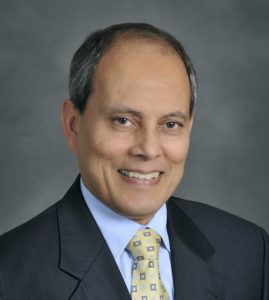 IEEE, the largest technical professional society in the world, has a very broad footprint while specializing in depth in most areas of electrical engineering. With almost 2,000 conferences, 150 magazines and journals, global standards activities and with five million articles in the IEEE Xplore digital library, the IEEE is a very complex organization. Members, and technology professionals in general, benefit from IEEE in many different ways. At the same time volunteers give their time and effort to keep the IEEE engine running. However, many other volunteers do not find the IEEE relevant to their work, or cannot benefit from the IEEE offerings. I will work to address this situation.
IEEE, the largest technical professional society in the world, has a very broad footprint while specializing in depth in most areas of electrical engineering. With almost 2,000 conferences, 150 magazines and journals, global standards activities and with five million articles in the IEEE Xplore digital library, the IEEE is a very complex organization. Members, and technology professionals in general, benefit from IEEE in many different ways. At the same time volunteers give their time and effort to keep the IEEE engine running. However, many other volunteers do not find the IEEE relevant to their work, or cannot benefit from the IEEE offerings. I will work to address this situation.
I am running for IEEE President-elect as an extension of my volunteer service to IEEE which began in 1985 when I was elected the chair of the IEEE Virginia Mountain Section. Since then I have served as chairs and members of various committees of the IEEE Technical Activities Board, the Educational Activities Board and the Publication Services and Products Board. In 2006 I chaired the IEEE Publications Board and served as a member of the IEEE Board of Directors. I was the president of the IEEE Power & Energy Society for 2018 and 2019. Through a proactive outreach and demonstrating benefits of IEEE membership, with unparalleled networking opportunities at over 2000 international IEEE conferences (face-to-face or virtual), access to the finest technological literature, massive resources for up-skilling, innovative collaboration facilities with like-minded colleagues worldwide, we can powerfully demonstrate IEEE’s relevance to current and prospective members. Let us employ the matchless facilities IEEE offers, to address the post-COVID ‘new normal’ supporting remote working, international collaboration, continuing professional development, ambitious technology development, promote renewable energy, expedite Sustainability, and build a resilient future for the current and future members of IEEE.


